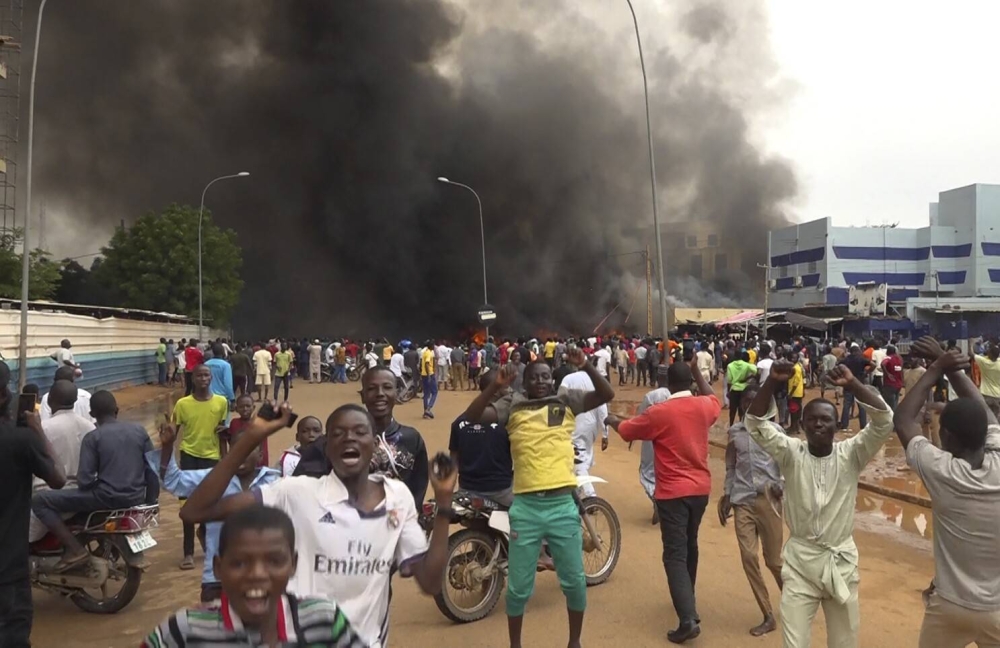The coup in Niger that toppled the democratically elected president has led to several nations and international agencies suspending aid -- a move that will hit one of the world's poorest countries really hard.
What does Niger receive?Niger, which has a population of 26.2 million, received $1.8 billion in aid in 2021, according to the latest figures from the Organisation for Economic Co-operation and Development (OECD).
That is more than any other West African country except its large neighbour Nigeria, which received $3.5 billion for a population nearly 10 times bigger.
In Niger, half the population lives below the poverty line -- less than $2.15 a day. The country struggles with repeated food shortages and has one of the worst ratings on the human development indices in the world.
International organisations such as the World Bank have long supported the country, funding various projects on the ground.
Much of that financial support is in the form of military aid to fight repeated attacks from jihadist forces linked to al-Qaeda and Islamic State-affiliated groups.
Troops from several Western countries are stationed on its territory, including soldiers from former colonial power France.
Foreign money accounts for a quarter of Niger's public spending, and international aid -- donations or loans at very favourable rates -- represents nine percent of its GDP, according to Dominique Fruchter, an economist covering West Africa with French insurance company Coface, which specialises in credit insurance and risk management.
The European Union says that only 62 percent of Niger's budget is funded domestically.
Who has announced what?France on Saturday was the first to announce it was suspending development aid to Niger, which last year totalled 120 million euros and was due to increase this year.
Germany followed on Monday, suspending a two-year package of aid last negotiated in 2021 worth 120 million euros but said it would continue to supply food aid.
London also said that Britain would maintain "critical" humanitarian aid, while suspending its long-term development aid.
The European Union's foreign policy chief Josep Borrell has announced the "immediate suspension of budgetary support" and security cooperation with Niger.
The bloc's 2022-26 aid package is worth 2.3 billion euros.
The United States has so far said little about suspending its own aid -- though US Secretary of State Antony Blinken said last week that it was contingent on the country maintaining "democratic governance".
US aid to Niger was set at $233 million for 2023.
West African nations have already imposed an economic blockade on Niger, while the World Bank announced on Wednesday evening that it was suspending aid other than private-sector partnerships "until further notice".
How will this affect Niger's economy?"To give up on this support, is to commit hara-kiri," Niger's Prime Minister Ouhoumoudou Mahamadou told broadcaster France24 on Sunday, referring to the Japanese term for ritual suicide.
Sanctions were going to be "a disaster" for the country, he warned.
For Fruchter however, it was far from clear that all aid would dry up.
"If you look at what has happened elsewhere, (aid) has not entirely disappeared," said the economist.
In Mali, for example, where the military junta defied international condemnation of their 2021 coup, some programmes -- notably those funded by the World Bank -- have continued.
The Washington-based World Bank said Wednesday that although it has halted disbursements for all operations there until further notice, private sector partnerships "will continue with caution".
But the cuts announced are already enough to severely hit Niger's economy.
The new regime may be placing some of its hopes in the fact that a new oil pipeline is due to come online by the end of the year.
On the basis of estimates drawn up by the government they ousted, the increased oil extraction should give enough of a boost to the country's GDP to offset some of the lost international aid.

With the headquarters of the ruling party burning in the back, supporters of mutinous soldiers demonstrate in Niamey, Niger, Thursday, July 27 2023. Not everyone is hostile to last week's coup in Niger. Neighboring Burkina Faso and Mali have taken the unusual step of declaring that foreign military intervention in Niger would be a declaration of war against them, too. Both have had coups in recent years. (AP Photo/Fatahoulaye Hassane Midou)
